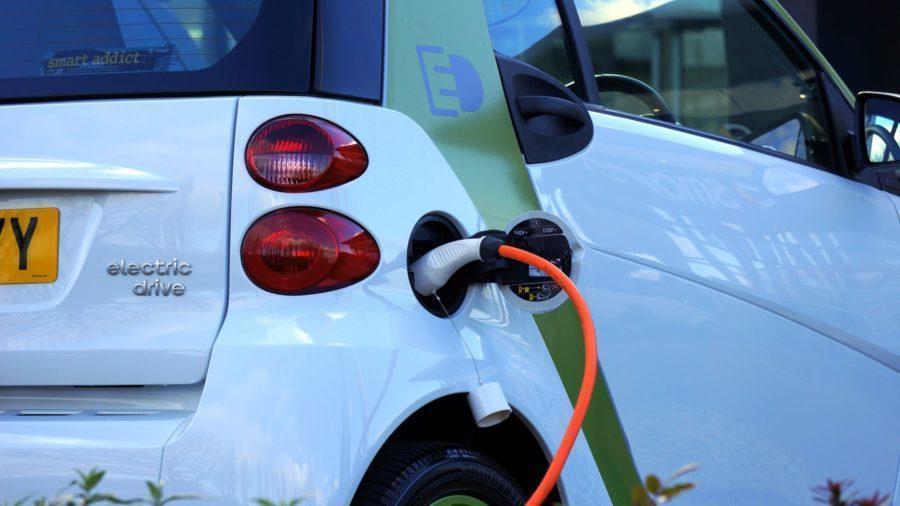By Swati Gupta.
Increasing pollution and the threat of global warming have accentuated the need to replace petroleum-fueled vehicles with emission-free substitutes. After decades of R&D, the industry has found electric vehicles as the best substitute for conventional vehicles, which has resulted in the emergence of electric vehicles.
An electric vehicle (EV) uses one or more electric motors for propulsion. Advancements in battery technology have helped increase the driving range of an electric vehicle. Hence, the popularity of EVs has grown in the recent past.
Ambitious EV targets and policy support from governments have resulted in the lowering of EV costs. In addition, factors such as extended vehicle range and improvement in charging infrastructure have fueled the demand for electric vehicles globally.
Led by China, the Asia Pacific region has the highest sales of electric vehicles. China is focusing on electric vehicles to deal with the rising vehicle emission in the country. The Chinese government is providing subsidies for the electrification of vehicles, which, in turn, has increased the sales of electric vehicles in China. The subsidies are offered for pure electric vehicles and hybrids.
Over the years, the cost of the battery has reduced, which would again have a positive impact on the market for electric vehicles in China. The Chinese government is providing subsidies on the purchase of an electric car. For instance, the government subsidy includes passenger car purchasing incentives of RMB 55,000 for BEVs and RMB 30,000 for PHEVs.
The global electric vehicles sale crossed 2 million units marks in 2018 with China having more than 50% market share. The growth of the electric vehicle market is driven by government funding, subsidies, and incentives; growing demand for electric vehicles; increasing concerns of environmental pollution; and huge investments from automakers in EVs. However, factors such as high price and small distance covered by EVs and the lack of standardization can restrain the market growth.
GLOBAL ELECTRIC VEHICLE SALES
The Electric Vehicles Initiative (EVI), which is a multi-government policy forum dedicated to accelerating the introduction and adoption of electric vehicles worldwide, has set a target of reaching an electric car fleet of 20 million by 2020 globally. The Paris Declaration on Electro-Mobility and Climate Change has also set a similar global deployment target of 100 million electric cars by 2030.
Electric vehicle charging stations (EVCS) are also known as electric vehicle supply equipment (EVSE) or electric charging points. It is an infrastructure that uses electricity to charge battery electric vehicles (BEVs) or plug-in hybrid electric vehicles (PHEVs). The need for electric vehicle charging stations has grown rapidly because of the increasing adoption of BEVs and PHEVs.
EV sales are increasing globally, especially in countries such as Japan, China, Germany, France, Netherlands, Norway, the UK, and the US. These countries, with favorable government policies, incentives, and infrastructure investment, account for more than 90% of the world’s EV sales.
The electric vehicle sales in North America are projected to be the second largest during the forecast period. North America is a regional hub for many renowned automotive OEMs, which are known for delivering quality and high-performance vehicles. OEMs in North America such as Tesla and GM focus on the development of faster, cleaner, and high-performance electric vehicles. The top-selling electric vehicles in the US are the Tesla Model S and Nissan Leaf.
LEADING COUNTRIES IN THE ELECTRIC VEHICLES MARKET
China has emerged as a powerhouse in the EV market. Attracted by government subsidies on EVs, more than 200 companies plan to manufacture and sell electric cars in China. According to Fitch, a leading rating agency, EV subsidies offered in China are the second best in the world after Norway.
Another initiative known as preferential vehicle licensing system helps EV buyers in China get license plates for free and without a waiting period. Moreover, the country’s national grid is increasing investment in EV charging station infrastructure and is expected to spend approximately USD 2.4 billion by 2020 to further improve the EV charging station infrastructure.
Favorable business environmental policies, such as “Made in China 2025,” are also helping startup companies to enter the EV market in China. For instance, in December 2017, Iconiq, a Chinese EV startup company, announced that the company will start the production of its 7-seater SUV electric car—Iconiq 7—in 2019. Another startup, NIO, backed by Tencent, Baidu, and Xiaomi, launched its 7-seater EV “ES8” in December 2017. The price of the vehicle is about half of Tesla’s Model X.
The US is estimated to hold the largest share in the North American electric vehicle market. The US automotive industry is inclined toward innovation, technology, and development of safe and comfortable automobiles.
The increasing production of electric vehicles such as BEV, PHEV, and HEV is expected to drive the market for electric vehicle infrastructure in the country. Electric vehicle manufacturing companies such as Tesla, GM, and Nissan have a major presence in the country. Additionally, major providers of electric vehicle charging infrastructure such as Car Charging Group and ChargePoint have a significant presence in the country. Battery manufacturers are also planning to expand their presence in the country.
Norway has witnessed full commercialization of the electric vehicle industry due to the incentives and tax breaks given by the government. Also, electric vehicles are exempted from road tax, purchase tax, registration tax, import tax, and annual tax. Electric vehicle boom in Norway has resulted in the emergence of the e-mobility value chain, which comprises charging infrastructure, electricity manufacturers, and charging station owners.

Electric cars – the future of transportation
Posted by
Jimmy_Lecar
6 years Ago
16th May 2019
What’s your reaction?
Shares
Jimmy_Lecar














